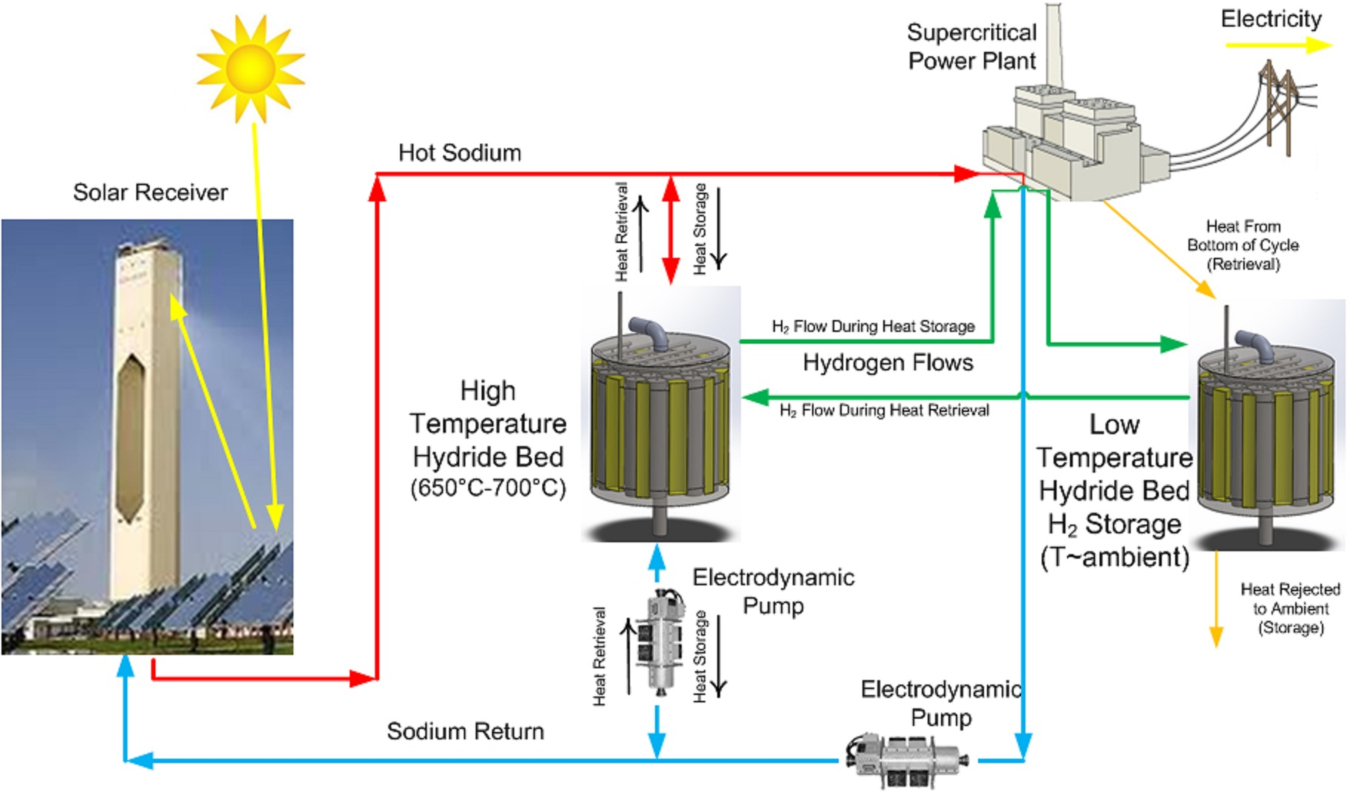-- This project is inactive --
Pacific Northwest National Lab (PNNL), through the Concentrating Solar Power: Efficiently Leveraging Equilibrium Mechanisms for Engineering New Thermochemical Storage (CSP: ELEMENTS) funding program, is developing a concept for high energy density thermochemical energy storage for concentrating solar power (CSP) using metal hydrides. These materials have potential to meet the U.S. Department of Energy's efficiency targets for both energy and exergy. Innovative metal hydride compositions and engineering solutions will be pursued to reduce materials and operations cost and increase efficiency. The full metal hydride thermochemical energy storage system will be sized at 240 kWh of storage, deliver a 30 kW heat rate, and have an efficiency projected to >95%. This system will be designed, fabricated, and evaluated as part of this project.
Approach
The technical concept is based on a system that consists of a high-temperature (HT) metal hydride bed for heat storage operating at ≥650°C and 2.4 bar pressure connected to a second metal hydride bed operating at low temperature (LT) which is used to store H2 near ambient temperature. PNNL has chosen metal hydrides that are low-cost, readily abundant, and non-toxic and will evaluate these materials according to the following considerations:
- Pressure-composition-temperature isotherms will be measured for the hydride material to validate operation range and performance
- Comsol multiphysics will be used to model the combined heat and mass transfer processes occurring as the HT and LT beds adsorb or deliver heat to their heat transfer fluids
- Assess the expected life cycle of the hydrides specified for the storage cylinders
- Scale up to kilogram quantities needed for the prototype testing
- Conduct a techno-economic analysis to show cost feasibility and commercial path forward
Innovation
The titanium hydride-based system is expected to provide higher exergetic efficiency than lower temperature systems such as magnesium hydride or phase change salts. Among hydrides, Ti-H is chosen due to advantageous operating temperatures and pressures. Relative to molten salt technology, the required volume of metal hydride to store an equivalent amount of thermal energy is 10x lower due to the metal hydride's higher energy density. Moreover, the operating temperature of <700°C avoids the need for expensive nickel-based alloys such as may be needed for a calcium hydride based heat storage strategy.
Learn about other concentrating solar power research.

